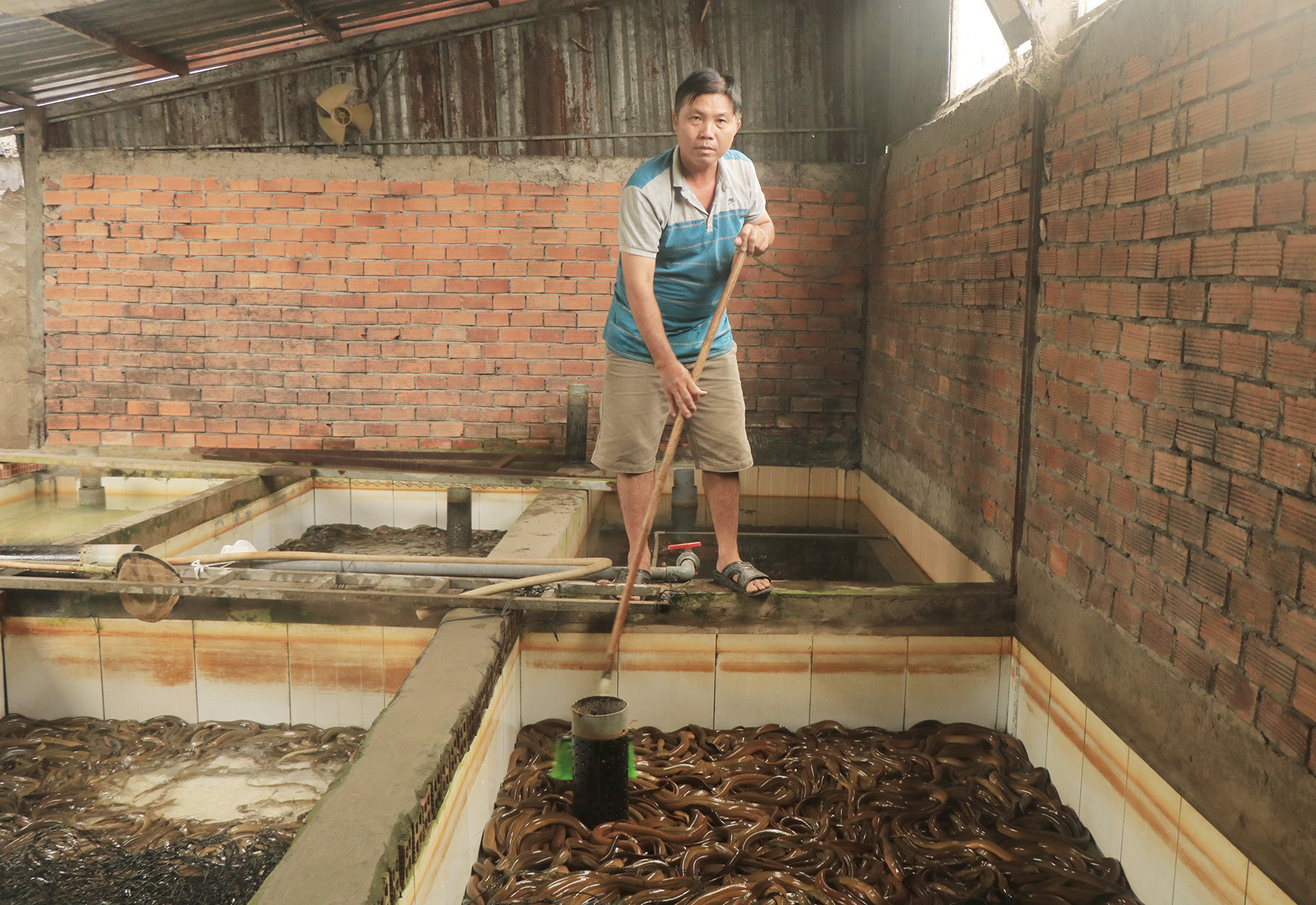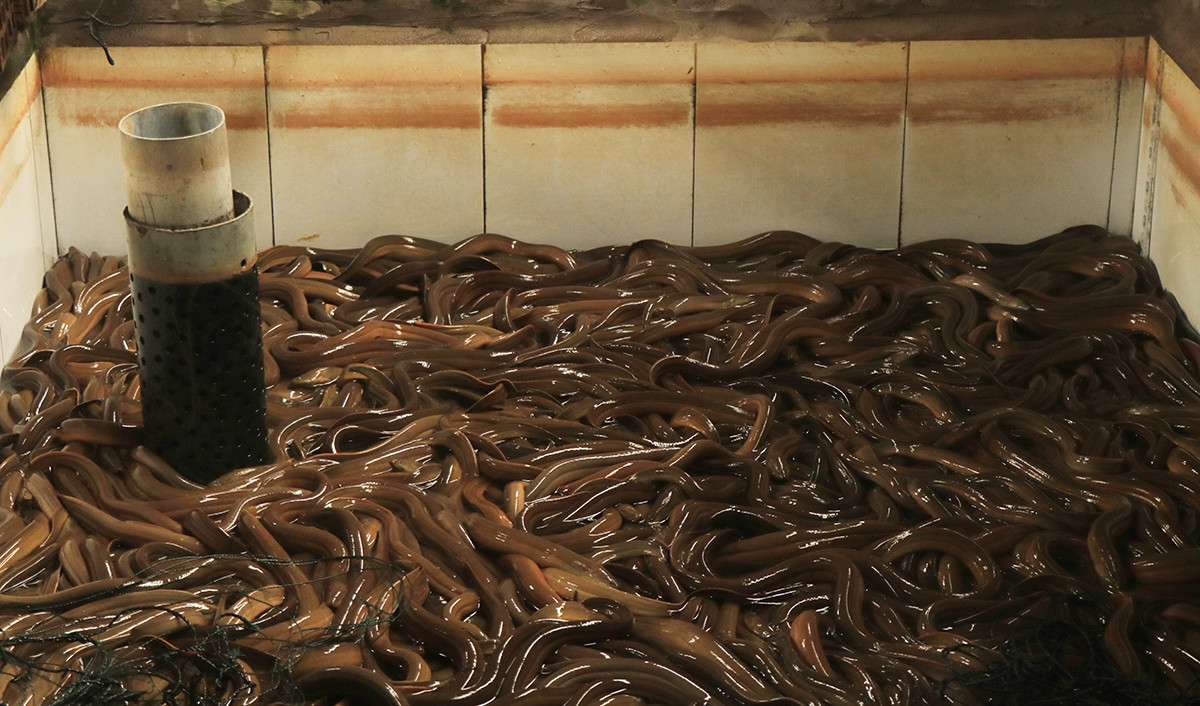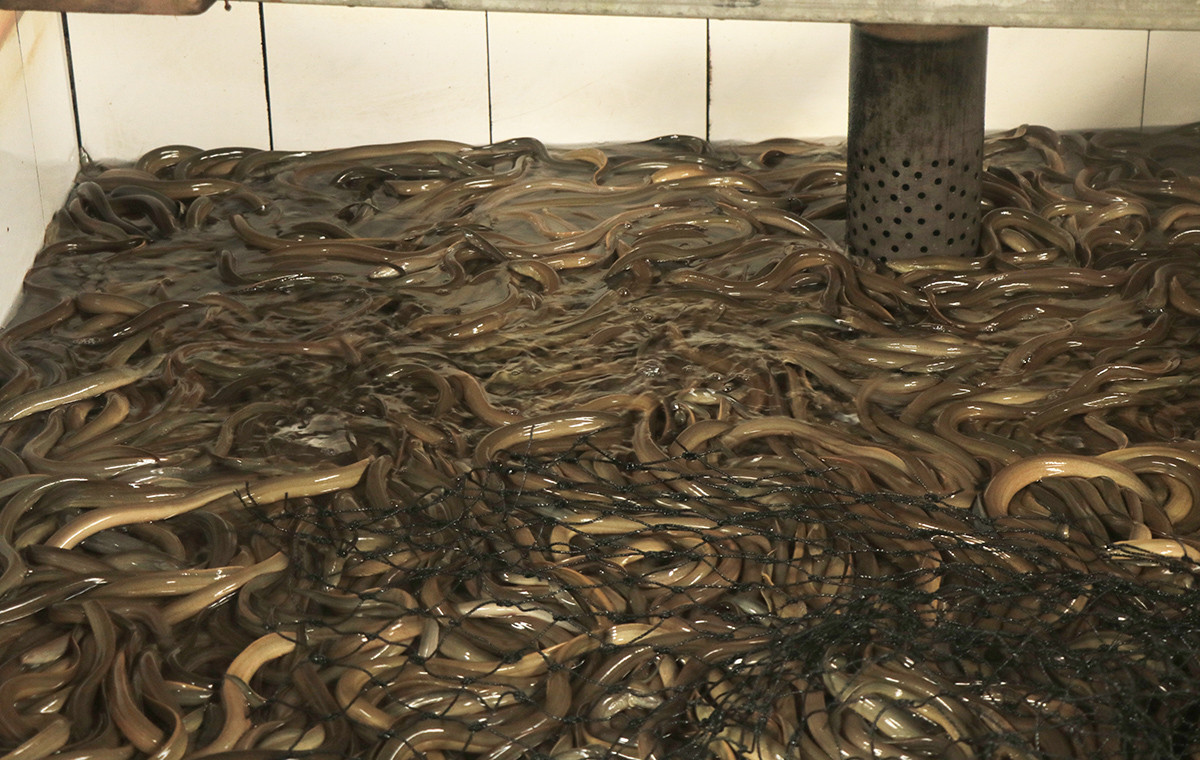In early November, Nguyen Van Phuong (46, residing in Phuoc Thoi Ward, O Mon District, Can Tho City) was busy changing the water in his eel tanks.
Growing up in a farming family, Phuong developed a passion for agriculture and animal husbandry from a young age, learning from and connecting with various farm owners.
Phuong always dreamed of becoming successful and building a business on his home soil. This led him to explore a method of mud-free eel farming.

"My wife and I have worked hard to make ends meet, taking on various jobs, from labor work to selling goods, but the income was barely enough to support our family and our two children’s education. In 2017, I decided to try mud-free eel farming, and since then, our finances have stabilized and improved," Phuong shared.
Recalling his reasons for choosing eel farming as a startup, Phuong explained that he noticed the high demand for dishes featuring eels and frogs at local restaurants, but supply was limited.
“I used about 500 square meters of space to set up both a small café and the eel tanks. I bought young eels to start raising, but lacking experience, I lost a significant portion in the first batch,” Phuong said.
Unfazed, he remained determined to keep investing in eel farming.
“This time, I learned from experienced eel farmers and studied agricultural extension resources and science-technology materials. After eight months, I was able to sell the eels, earning over VND 100 million. From there, I expanded the operation, and now I’m raising over 20,000 eels,” he explained.

Phuong shared that mud-free eel farming requires careful attention to factors like seed quality, tank conditions, and water quality. The benefits of this model are that it requires less maintenance, occupies less space, and offers a stable, high price and strong market demand.
Phuong’s eel tanks are 1.5 meters wide and 3.5 meters long, with disinfected and dried mesh inside to provide shelter for the eels. The water level in each tank is maintained between 30-40 cm, depending on the stocking density.
Phuong feeds the eels twice daily and changes the water before each feeding.
“To ensure high growth rates and survival, it’s crucial to start with healthy eel seeds. These should be sourced from reputable suppliers to ensure the eels are free from scratches and mucus loss, have uniform size, and are of clear origin.
Additionally, clean water is essential. Dirty water increases the risk of disease and death. I create an artificial rearing environment by regularly pumping and changing the water, keeping levels moderate. Eels should also receive supplements like gut probiotics and vitamin C, mixed into their food,” Phuong shared.

According to Phuong, raising eels from larvae (eel eggs) to market size takes around 12-14 months. For larger eels (300-500 per kg), it takes about 8-9 months to reach market size. Currently, market rates for eel meat are about VND 120,000 per kilogram, though prices can sometimes go higher.
In addition to selling market-size eels, Phuong also sells eel seedlings, offers technical support, and guarantees product sales for other farmers. His eels are distributed across various provinces and cities, including Can Tho, Hau Giang, and Vinh Long. To ensure a year-round supply of eel seedlings and meat, he farms in rotations, yielding two harvests per year.
Annually, Phuong sells approximately 3-4 tons of market-size eels and around 200,000 eel seedlings, bringing in hundreds of millions of VND in income.
Hoai Thanh